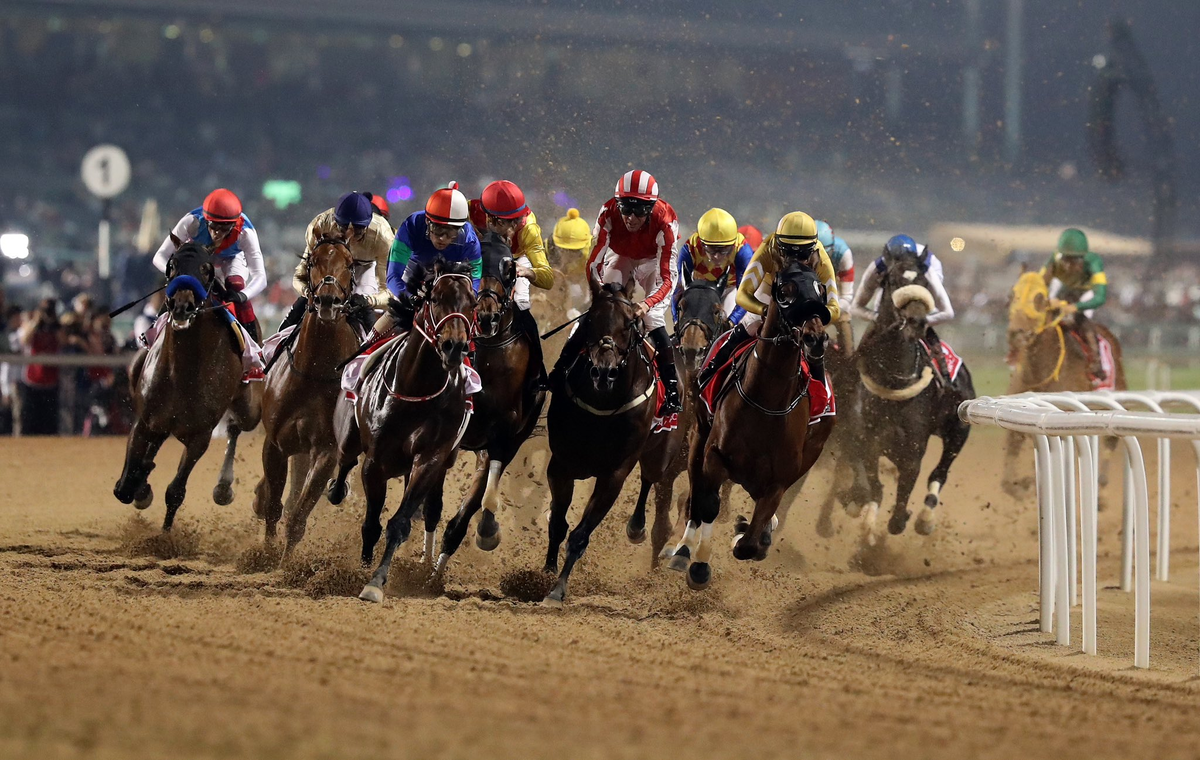

In 2024, the Kentucky Derby celebrates its 150th edition, marking a historic milestone for the “Run for the Roses.” Known for its thrill as “the fastest two minutes in sports,” the Derby spans 1 ¼ miles and kicks off horse racing’s esteemed Triple Crown. Yet, amidst the fanfare and excitement, one can’t help but wonder: Will this event truly unfold as planned for all involved, particularly the horses?
Watch What’s Trending Now!
Amidst the spectacle of eye-catching fashionable hats and outfits at Churchill Downs, one can’t help but wonder if this vibrant scene truly reflects the experience of the horses. Perhaps not. Last year’s tragic horse deaths cast a shadow over the festivities, reminding us of the darker reality these majestic animals face. Recently, X users echoed the concerns, highlighting the need to confront the harsh truths behind the glamour of events like the Kentucky Derby.
Recently, PETA drew attention to the stark divergence between the public perception of the Kentucky Derby and the grim reality for the horses involved. Their poignant statement, “For you the Kentucky Derby is a springtime event but for horses, it’s life or death,” resonates deeply. Looking at last year’s toll serves as a haunting reminder. Twelve horses tragically lost their lives in the days surrounding the prestigious race, overshadowing its glitz and glamour with a somber reality. Among them was Wild on Ice, a promising contender whose aspirations for Derby glory were shattered by a devastating leg fracture sustained during training.
ADVERTISEMENT
If you look past the mint juleps & ornate hats at the #KYDerby, you will see the dark, deadly reality for horses at Churchill Downs 😢 pic.twitter.com/rJk4TUrLOm
— PETA (@peta) May 4, 2024
The reason mostly was harrowing accounts of cardiovascular collapse, catastrophic injuries, and sudden deaths reveal the harsh truth lurking behind the facade of horse racing’s allure. Despite assurances of soundness from track veterinarians, the specter of tragedy looms large over the sport. The relentless pursuit of victory, coupled with the industry’s disregard for the well-being of its equine athletes, raises profound questions about the ethics of horse racing which has been troubling the fans as well on X.
ADVERTISEMENT
Voices of contention
Among the myriad comments, a few resonated deeply. One commenter questioned, “They say it’s in their blood. Why is a jockey using a whip? They are bred, trained, and forced to run so an owner or trainer can get money and glory!” This observation highlights the ethical dilemma underlying horse racing, where the pursuit of profit often overrides the welfare of the animals involved.
They say it’s in their blood.Why is a jockey using a whip? They are bred ,, trained and forced to run so an owner or trainer can get money and glory! When a horse falls, tv analyst usually on worry about jockeys, that’s bull, jockey made the choice, the horse didn’t
— john killeen (@johnkil03041711) May 4, 2024
ADVERTISEMENT
Another voice, usually aligned with horse racing, conceded, “I normally don’t agree with PETA, and I’ve been a horse racing fan for years, but this is sad but true.” This shows the uncomfortable truths within the industry, suggesting a growing awareness of its darker realities.
Top Stories
Update Announced on Josh Allen’s Bills Staying Near Brown University Amid Tragic Incident

2025 Vic PGA Championship: Prize Money, Winner’s Payout & More Explored

Forced to Leave FOX, Cowboys Legend Troy Aikman Says ESPN Is Like ‘U.S. Government’ & Clearly Distinguishes the Two Networks

Michigan Football Receives Disappointing Kenny Dillingham News on Saturday

$250M Michigan Booster Reveals More to Sherrone Moore Saga After Paige Shiver Confirms Police Visit

Army vs Navy: Why is U.S. President Donald Trump Attending the Game?

I normally don’t agree with peta and I’ve been a horse racing fan for years, this is sad but true. https://t.co/YOn4ZXO2Ul
— BigPoppaGrizz (@bigpoppagrizz62) May 4, 2024
In contrast, an advocate for the Kentucky Derby’s tradition emphasized, “The KY Derby has been a time-honored tradition for 150 years. It’s the oldest sporting event in the US.” While celebrating the event’s heritage, this comment also defends the treatment of racing horses, portraying them as revered and well-cared-for athletes who engage in their passion willingly.
ADVERTISEMENT
The KY Derby has been a time-honored tradition for 150 yrs. It's the oldest sporting event in the US. The horses that race at Churchill Downs are revered & celebrated. These horses are well cared for & pampered. And doing what they love to do…running.
— Blue Kentucky Girl (@kentuckyjenny) May 4, 2024
However, amidst these diverging perspectives, one voice unapologetically condemned, “AWFUL! UNBEARABLE! CRUEL!” This visceral reaction encapsulates the raw emotion evoked by witnessing the perceived suffering of horses in the name of entertainment, demanding urgent attention to the sport’s inherent cruelty.
AWFUL ! ! ! UNBEARABLE ! ! ! CRUEL ! ! !
— Albatros 56 (@carlucci_nylla) May 4, 2024
ADVERTISEMENT
Lastly, a scathing critique denounced the entire spectacle as “torture for horses” and decried it as “degrading human culture.”
It’s torture for horses to be run like this. This is only enjoyment for the vile and disgusting. This is degrading human culture and must stop. What type of society cheers this type of entertainment?? Disgusting people,
— Ingrid (@Ingridsbobolove) May 4, 2024
These condemnation reflects a broader societal reckoning with the morality of exploiting animals for entertainment and calls for a fundamental shift in values away from the glorification of such practices.
ADVERTISEMENT
ADVERTISEMENT
ADVERTISEMENT
ADVERTISEMENT

